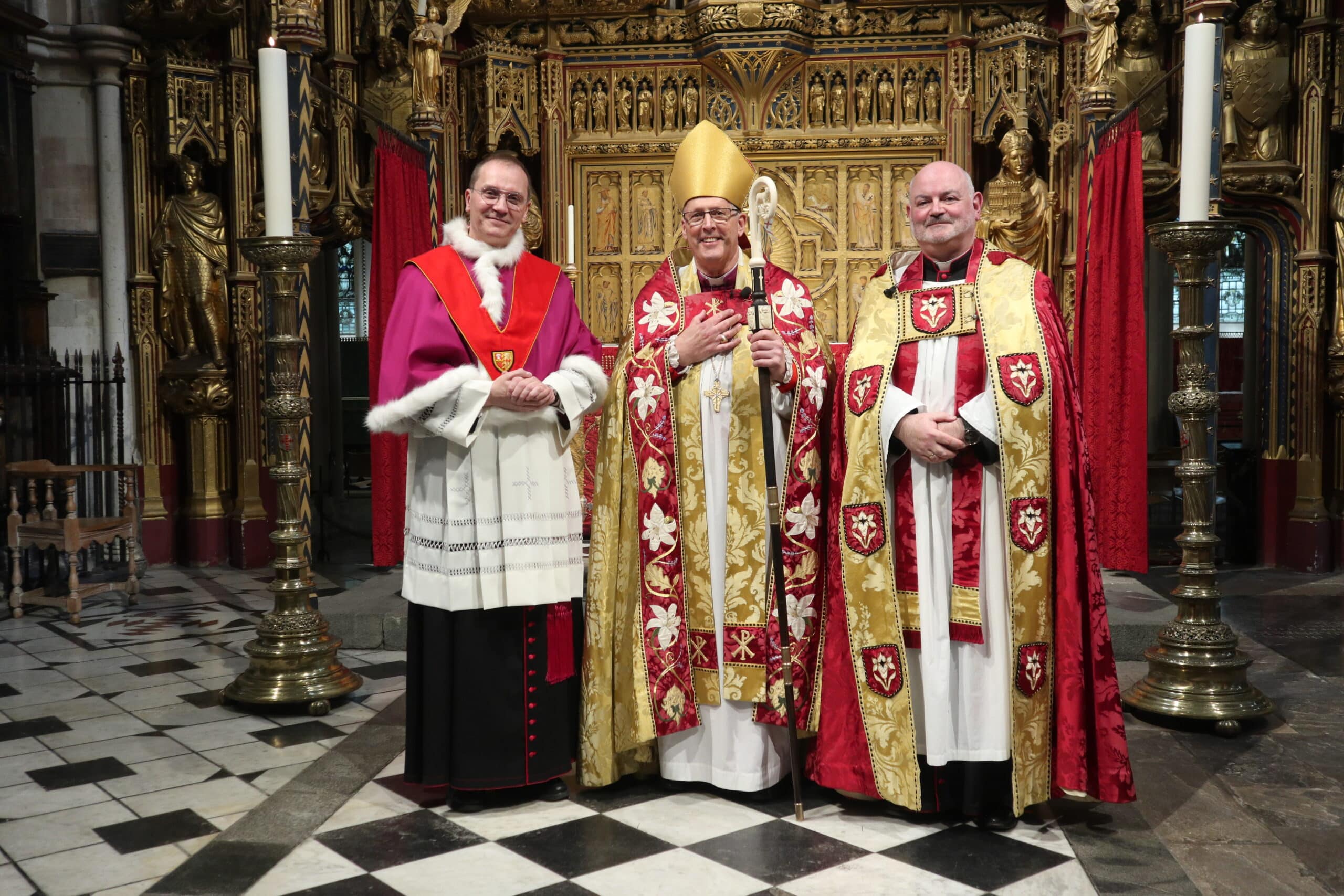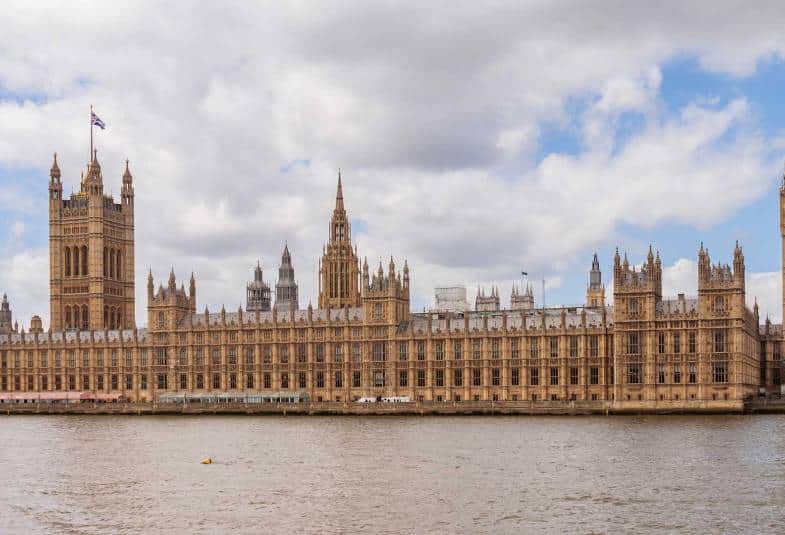Diocesan Synod: 18 November 2023
Members of Synod, my brothers and sisters in Christ, this week General Synod passed the following motion concerning the Prayers of Love and Faith.
That this Synod, conscious that the Church is not of one mind on the issues raised by Living in Love and Faith, that we are in a period of uncertainty, and that many in the Church on all sides are being deeply hurt at this time, recognise the progress made by the House of Bishops towards implementing the motion on Living in Love and Faith passed by this Synod in February 2023, as reported in GS 2328, encourage the House to continue its work of implementation, and ask the House to consider whether some standalone services for same-sex couples could be made available for use, possibly on a trial basis, on the timescale envisaged by the motion passed by the Synod in February 2023.
It was a narrow vote but an historic moment, confirming Synod’s decision made in February, mandated then by each of the three Houses – a decision that began with an apology and recognised the dignity and gift to the whole Church of God of our LGBTQIA+ brothers and sisters. The apology is now given substance and at the same time the motion acknowledges the uncertainty and hurt many people are experiencing and have experienced across the breadth of convictions.
I welcome the decision that has been made. It is in line with much that I anticipated might happen and have shared with you in recent Presidential Addresses. I also want to say that the leadership of this Diocese will be utterly unshakeable in protecting the spectrum of conviction on this matter and will continue to hold in high esteem and respect the sincerity of those who do not wish to use the prayers as we will for those who do. I simply ask once again that we continue to speak well of each other as befits our calling as fellow members of the Body of Christ. No one will be asked or required to use the Prayers of Love and Faith unless they choose to do so from their hearts. Those who do use them will use them with my blessing. The House of Bishops has affirmed again this week its commitment to protecting conscience in the process surrounding LLF. The House of Bishops is also committed to providing pastoral provision for those clergy and parishes who might seek it. These are, of course, conversations for the National Church, but I shall be pleased to implement whatever is discerned nationally here in Southwark, much in the way that I am pleased currently to offer extended episcopal care through the bishops of Fulham and Ebbsfleet.
The broad trajectory General Synod has set is clear, although – as is inevitably the case when the Church sees development in its common life – there remain some questions to explore. The Prayers of Love and Faith are a modest codification of what is already permitted – and what has already been happening in many parishes in the Diocese. Change does not happen in a vacuum. The current guidance from the House of Bishops already says, ‘Where clergy are approached by people asking for prayer in relation to entering into a civil partnership they should respond pastorally and sensitively in the light of the circumstances of each case’.[1]
What has not been permitted until now are blessings. That is new – but there is absolutely no compulsion to use what is provided. How we respond locally, however, to General Synod’s mandate is up to us. In each Deanery, in each Episcopal Area, and in my own staff team we model unity in diversity – great diversity. That is a distinctive hallmark of Southwark which, as you know, I encourage us all to see as God’s gift and blessing. I anticipate that a good number of parishes, under the leadership of their incumbents, will use the Prayers of Love and Faith with joy. Others will take time to make a decision, and some will be clear in their convictions from the outset that they do not wish to use them. The Pastoral Principles, so carefully formulated at an early stage of the Living in Love and Faith process, are a good guide for us all. I encourage you to read them again and take them to heart. We cannot take refuge in merely confining ourselves and our interactions to brothers and sisters who agree with us. Our journey – like the root meaning of the word ‘synod’ – is to go forward together on the way (syn hodos), under Christ, acknowledging that in reality this will make demands on us and be costly both in conscience and conviction but is ultimately joyful and in accord with the will of the One who calls and is faithful (cf 1 Thessalonians 5. 24).
In my Presidential Address in March I referred to the concept of reception, which is a concept that I believe will help keep our common life in focus. Reception gives context to the space we move into following change. In other words, moving from a proposition to the reality of lived experience. As I said in March quoting the Windsor Report [2004], reception is
‘a way of testing whether a controversial development arising within a province by legitimate processes, might gradually, over time, come to be accepted as an authentic development of the faith’ and enable a settlement (Windsor Report, para. 68). In a church such as ours, shaped at the Reformation as it was in argument and conflict, reception is an important test. It is a principle that sets the boundaries of accommodation.
All of this is to say that reception acknowledges that the Church itself is a living organism. Over my 40 years of ordained ministry reception has helped the Church over the remarriage of divorcees, over the ordination of women and will help us now. The story of the Church is a great, wonderful journey through history with the faithful responding to their apostolic calling in the different contexts and challenges along the way at the prompting of conscience – yet Christ is the same, yesterday, today and forever. The Acts of the Apostles shows that the early Church proclaimed Christ in a time of great uncertainty and periodic persecution – and that the Holy Spirit leads the church as the body of Christ, aminating that body, revitalising it constantly, and going ahead of the Church to bring believers into new articulations of the fullness of life that has been won for us in Christ. In this we acknowledge both that the peace of God passes all human understanding and yet, as St Anselm understood so clearly, we are given a questioning faith which is at the same time seeking understanding.
So, my brothers and sisters, we go forward joyfully with a commitment to resourcing apostolic mission and ministry throughout the Diocese. At this Synod, I shall propose a motion to endorse the new Southwark Vision which will take us through to 2035. It is built on the firm foundation that all our parishes are valued, across the spectrum of tradition, conviction, and context. The new vision will by God’s grace develop the habits that we have been learning – working together, acknowledging differences as strengths, speaking well of each other, and building a culture that expresses our mutuality and interdependence, each always having need of the other. I said in March,
With God’s help, let us go forward in good faith and mutual respect, open to the guidance of the Holy Spirit, and not saying to others who hold a different view, ‘I have no need of you’. We have a solemn duty to do this.
Thankfully, the Church’s life continues. We are approaching Advent, the holy and joyful season which begins a new Church year, in which we prepare to celebrate the Incarnation and birth of our Lord and Saviour Jesus Christ. This year, pilgrims will not be able to make their way to the Holy Land. Our hearts go out to our brothers and sisters in Israel and Palestine. Large numbers of people have suffered and are continuing to suffer so greatly following the evils unleashed by the Hamas massacre of infants and other innocent victims on 7 October. We hear daily of the growing number of innocent victims suffering in Gaza, so many of them children, as Israel takes military action in response. I have called for the immediate release of the hostages as well as for a humanitarian ceasefire. But I ask members of Synod to focus on community relations in each of our parishes, reaching out wherever possible to our Jewish and Muslim neighbours as we must counter the great social evils of anti-Semitism and Islamophobia – increasingly evident in this current fraught context. I also commend to you the appeal for the Anglican Hospital in Gaza jointly endorsed by the Archbishop of Canterbury and the Anglican Archbishop in Jerusalem, our good friend Archbishop Hosam.
At times in our history when pilgrims could not visit the Holy Places because of conflict, the Church encouraged the custom of placing a crib in every parish so that we might come to that place as pilgrims to kneel in adoration and rejoice at the birth of our Lord and Saviour. This Advent, let us make our hearts a crib so that Christ may be born anew in them, preparing them carefully and intentionally with a focus on intercessory prayer for our brothers and sisters in this Diocese and in the Holy Land. In The Joy of the Gospel Pope Francis wrote that intercessory prayer ‘moves us particularly to take up the work of evangelisation and to seek the good of others’ (Evangelii Gaudium, 281). And, ‘When evangelisers rise from prayer, their hearts are more open; freed from self-absorption, they are desirous of doing good and sharing their lives with others’ (Evangelii Gaudium, 282). My brothers and sisters, the world needs to hear the Gospel of Christ. Let us together proclaim his saving Birth, his Life, Death, Resurrection, and subsequent gift of the Spirit. We have good news to tell. It is up to us to tell it – and we shall tell it best together.
Lastly, I wish to say that in focussing on the suffering of our brothers and sisters in the Holy Land I am also aware of the cost of discipleship at this time for many brothers and sisters in this Diocese. But I wish to give you words which are not mine but those of the Apostle Paul writing to the Church in Rome:
Therefore, since we are justified by faith, we have peace with God through our Lord Jesus Christ, through whom we have obtained access to this grace in which we stand; and we boast in our hope of sharing the glory of God. And not only that, but we also boast in our sufferings, knowing that suffering produces endurance, and endurance produces character, and character produces hope, and hope does not disappoint us, because God’s love has been poured into our hearts through the Holy Spirit that has been given to us (Romans 5. 1-5).
The Rt Revd Christopher Chessun
Bishop of Southwark
[1] Civil Partnerships – A pastoral statement from the House of Bishops of the Church of England (December 2019).






